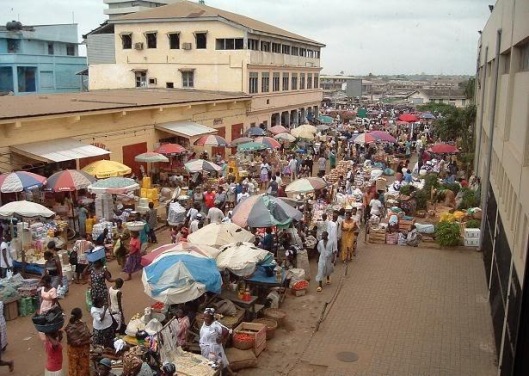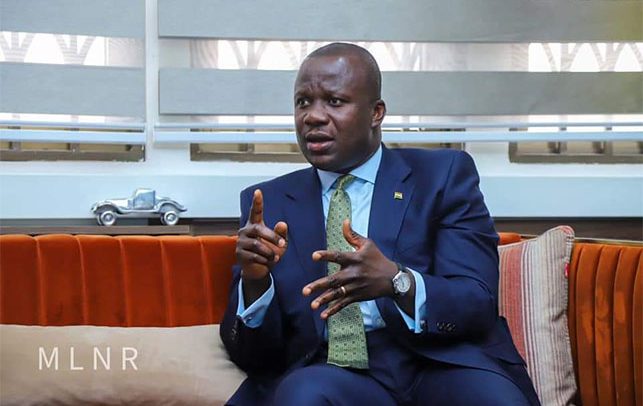
By Dr. Philip TAKYI
Digitalisation has been one of the key drivers for economic growth in Ghana. Previous Governments, including the current regime, have played significant roles to leverage digital technologies intended for sustainable economic growth.
However, these efforts have not sufficed in transforming the country from its substantial challenges in infrastructure, governance, and revenue mobilization.
As a way forward, studies have shown that to leverage digital technologies for sustainable economic growth, Ghana must primarily build a robust economic foundation that addresses unpredictable inflation, challenges with revenue collection, unsustainable debt management, and a worsening currency. Below are key digitalisation projects launched on by governments in the last 15 years, but yet to transform Ghana’s economic fundamentals:
Key government digitalization projects BEFORE 2016 that are still in operation
- E-Health – Ghana’s E-Health programme (2009) aimed to improve the delivery of healthcare services through digital technology. The program continues to evolve, and new advancements such as telemedicine and health mobile apps are expanding access to healthcare services in rural and underserved areas. In 2024, Ghana has expanded its digital health infrastructure to include telehealth consultations, reducing barriers to healthcare access in remote areas (Ghana Health Service, 2024).
- National e-Platform for Payments (GhanaPay) – Ghana launched the National e-Platform for Payments (GhanaPay) in 2014 in an effort to digitalize financial services and improve the efficiency of transactions in the country. By 2024, the platform has played a key role in increasing cashless transactions, especially in urban centers. It has helped formalize many transactions and reduced instances of corruption within the payment system (Bank of Ghana, 2024).
- Ghana Open Data Initiative (GODI) – The Ghana Open Data Initiative (GODI) was launched in 2010 to enhance transparency in governance by providing the public with access to key government data in digital formats. The initiative is still operational, providing data sets for researchers, journalists, and the public, contributing to increased transparency and accountability in government (World Bank, 2024).
- Ghana Post GPS System – While the official Ghana Post GPS System was formally launched in 2017, its conceptualization and initial work began before 2016. The system has been widely adopted as the digital address system is particularly vital for improving logistics and mail delivery systems across the country (Ghana Post, 2024).
- e-Justice Project – The e-Justice Project (2014) was introduced to digitize the country’s judiciary system and improve the efficiency of legal processes. The project has modernized the judicial system, allowing for easier access to court documents, quicker case resolutions, and better case tracking. It has also paved the way for the adoption of e-filing systems in many courts across the country (Ghana Judiciary, 2024).
Key government digitalization projects AFTER 2016 that are still in operation
- Mobile Money Interoperability – Mobile Money Interoperability (2018) introduced to allow users to send and receive money across different mobile money platforms, banks, and other financial institutions. The initiative has greatly enhanced mobile money services and continues to play a pivotal role in facilitating cashless transactions and economic participation across the country (Bank of Ghana, 2024).
- e-Pharmacy initiative – The e-Pharmacy initiative (2020) has made significant strides, allowing residents in rural communities to access medications online, improving healthcare delivery (Ghana Health Service, 2024).
- National Digital Property Addressing System – The National Digital Property Addressing System (2020) is an extension of the digital address system, which seeks to assign a unique digital address to every property in the country, facilitating more efficient and accurate delivery of services, including emergency response and taxation.
- National Identification System – The National Identification System, a concept started in 2003 but successfully re-introduced in 2018 to provide every Ghanaian citizen and resident with a biometric national ID card, aimed at streamlining identification and creating a robust system for accessing services across the country. The Ghana Card is fully integrated into various governmental and financial systems, contributing to enhanced security, identification accuracy, and economic inclusion (National Identification Authority, 2024).
- e-Agri platform – The E-Agri platform was launched in 2021 to help digitize the agricultural value chain in Ghana. It is meant to connect farmers with buyers, agricultural experts, and market information, facilitating access to finance, inputs, and improved agricultural practices.
Background
Ghana faces several significant economic challenges that hinder its growth prospects and economic stability. These challenges are largely a result of structural issues, global economic shocks, and domestic policy constraints.
As Ghana looks to turnaround its economic fortunes, with lessons from unsuccessful impact of previous and current digitalization projects in addressing its challenges, premised on global successes, it becomes essential to consider the presented alternative, a 24-hour economic policy, and scrutinize how it could play a transformative role in boosting productivity, creating jobs, and enhancing global competitiveness. The readiness of Ghana’s economy for this shift requires careful analysis of several key factors, including infrastructure, workforce capabilities, economic indicators, and the government’s policy stance.
To put it in perspective, a 24-hour economy framework refers to a model where economic activities are not limited to conventional working hours but instead are structured to operate around the clock, 24 hours a day, 7 days a week. This concept maximizes the utilization of available resources, infrastructure, and labor while aligning with the demands of global markets and digital connectivity. The framework involves shifting business operations, service sectors, manufacturing, and trade to run continuously, ensuring that productivity and economic output are sustained at all times, regardless of time zone or geographic location.
It is essential to reiterate that, in the face of the efforts in digitalizing the economy, as of mid-2024, Ghana’s inflation rate stands at 43.5percent (Ghana Statistical Service, 2024), down slightly from the peak of 54.1percent in early 2023. This high inflation rate continues to erode the purchasing power of households, especially for basic goods such as food, fuel, and transport. Ghanaian households, particularly those in urban areas like Accra and Kumasi, have seen sharp increases in their cost of living, with food and transportation becoming a significant portion of household expenditures. This inflationary pressure has made it difficult for many Ghanaians to maintain their standard of living.
Additionally, as at today, the focus on digitalization has not helped the cedi, depreciating by 45percent against the US dollar since 2022 (Bank of Ghana, 2024). This trend reflects a combination of high import bills, low foreign exchange reserves, and reduced investor confidence. Due to the depreciation of the cedi, fuel prices in Ghana have increased by over 30percent in 2024, impacting transportation costs and further fueling inflation. Public transport fares and the prices of consumer goods have risen, placing additional strain on the average Ghanaian household.
Coupled with that, another ailing fundamental is Ghana’s public debt, which stands at approximately US$70 billion, or about 80percent of GDP (AfDB, 2024). This represents a significant increase from 55percent of GDP in 2019. Ghana has accumulated debt through both domestic borrowing and foreign loans to finance infrastructure projects and public services. In 2024, Ghana entered a US$3 billion agreement with the International Monetary Fund (IMF) to secure financing for debt restructuring and economic reforms. However, the IMF program also comes with austerity measures, including cuts in public spending and increased taxes, which are further challenging the economy.
Ghana continues to face high levels of unemployment and underemployment, particularly among the youth, a sign that the all-important digitalization agenda may be misplaced. As of 2024, Ghana’s overall unemployment rate is 4.5percent (World Bank, 2024), which might seem low at first glance. However, youth unemployment is significantly higher, with estimates indicating that 12percent of young people (ages 15-24) are unemployed (Ghana Statistical Service, 2024).
Despite digitalization efforts to increase tax collection, Ghana still faces challenges in mobilizing sufficient domestic revenue to fund government expenditure. Ghana’s tax-to-GDP ratio remains low, at about 12percent in 2024, which is far below the African average of 16percent (World Bank, 2024). While the government has increased value-added tax (VAT) and excise taxes to generate revenue, these measures have been unpopular and have not significantly boosted the overall revenue collection.
Ghana’s economy faces a complex mix of challenges, including high inflation, a depreciating currency, unsustainable public debt, high unemployment, and low tax revenues. These issues, if not prioritized, could undermine the country’s long-term economic growth prospects.
Is Ghana’s economy ready for a 24-hour economy? A detailed analysis
Ghana is strategically positioned to adopt a 24-hour economy, with significant improvements in infrastructure, a youthful and adaptable labor force, and a growing digital and manufacturing base. While challenges remain—particularly in energy supply, skills development, and regional disparities—the foundations for a 24-hour economy are in place. By capitalizing on its strengths in sectors like agriculture, manufacturing, and digital services, and improving infrastructure such as ports and logistics, Ghana can harness the potential of a 24-hour economy to drive growth, create jobs, and strengthen its position in global trade.
As Ghana looks to modernize its economy, a 24-hour economy could play a transformative role in boosting productivity, creating jobs, and enhancing global competitiveness. However, the readiness of Ghana’s economy for this shift requires careful analysis of several key factors, including infrastructure, workforce capabilities, economic indicators, and the government’s policy stance. In this detailed analysis, we will explore the data and rationale behind why Ghana is primed for adopting a 24-hour economic framework.
Economic growth and stability
Ghana has seen steady growth over the past two decades, making significant progress in areas such as GDP growth, industrialization, and foreign direct investment (FDI). Despite challenges like inflation, high public debt, and currency depreciation, the fundamentals for a 24-hour economy are gradually aligning.
- GDP growth: Ghana’s GDP grew by an average of 6.7percent annually between 2016 and 2019, one of the highest in the West African region. Although growth slowed in 2020 due to the COVID-19 pandemic, the economy has rebounded with 4.3percent growth in 2021 and projected growth of 3.5percent in 2024 (World Bank, 2024).
- FDI: Foreign direct investment into Ghana has steadily increased. In 2023, Ghana attracted US$3.3 billion in FDI, showing the growing investor confidence in the country (UNCTAD, 2024). A 24-hour economy would further encourage global investment by facilitating seamless trade across time zones.
- Key sectors: Ghana’s key sectors, such as financial services, mining, agriculture, manufacturing, and services, are expanding. For example, the mining sector remains a cornerstone of the economy, contributing 7percent of GDP in 2023 and accounting for a significant portion of export earnings (AfDB, 2024).
According to the World Bank and Findex Database, Ghana’s financial inclusion rates have grown substantially, from 41percent in 2014 to over 58percent in recent years, largely due to mobile money innovations. The 24-hour economy, driven by financial technology and mobile platforms, is playing a pivotal role in bridging the financial inclusion gap in Ghana. However, addressing the existing challenges (digital literacy gaps, power outages, and internet connectivity challenges) and expanding infrastructure are vital for sustained progress.
Infrastructure development
One of the most crucial components of a 24-hour economy is reliable infrastructure, particularly in transportation, digital connectivity, and energy supply. Ghana has made significant strides in these areas, though further investment is necessary to fully support continuous operations.
- Port and logistics infrastructure: Ghana’s ports, particularly Tema and Takoradi, are vital hubs for regional trade and serve as gateways for exports such as gold, cocoa, and timber. The Tema Port expansion project is one of the largest infrastructure developments in West Africa, designed to handle greater volumes of cargo and increase operational efficiency (AfDB, 2023). However, these ports currently operate only during regular business hours, and introducing a 24-hour model would enable them to handle global traffic more efficiently.
- Energy supply: The availability of consistent energy is vital to a 24-hour economy. Ghana has significantly improved its power generation capacity, adding over 2,000 MW of power since 2015 through investments in new plants and energy projects (World Bank, 2024). Ghana’s current energy supply capacity stands at around 5,000 MW, and there are plans to increase this to 10,000 MW by 2030 (AfDB, 2024. Although occasional energy shortages remain a challenge, the increased capacity and expansion of renewable energy sources position Ghana to support a continuous working environment for key sectors.
- Digital infrastructure: The expansion of broadband internet has been a key focus in Ghana. According to the Ghana Communications Authority, internet penetration has grown to 69percent in 2024, a major improvement from 8percent in 2010 (UN, 2024). With over 60percent of Ghanaians now owning smartphones and the government pushing for increased digital literacy and e-government services, the country is well-positioned to support digital services 24/7.
Workforce and labor market
A 24-hour economy requires a dynamic and adaptable workforce. Ghana’s labor market, while young and growing, faces challenges in terms of skills mismatch, underemployment, and regional disparities. However, significant improvements in education, workforce training, and labor policies could support this shift.
- Youthful workforce: Ghana has a large, youthful population, with more than 60percent of the population under the age of 25 (World Bank, 2024). This demographic advantage presents an opportunity to build a flexible, shift-based workforce capable of adapting to the demands of a 24-hour economy.
- Skills development: Ghana’s technical and vocational education and training (TVET) programs are expanding. In 2024, the government launched a new National TVET Policy to provide skills training for over 2 million youth by 2030, particularly in sectors like construction, manufacturing, and services (AfDB, 2024).
- Labor market challenges: Ghana’s current unemployment rates remain a challenge, particularly with the high rate of underemployment in the informal sector. The introduction of shift-based, 24-hour operations could create a wide range of formal job opportunities, particularly in urban areas.
In 2023, Ghana’s unemployment rate stood at 4.5percent, but youth unemployment remains high at approximately 12percent (World Bank, 2024). The shift to a 24-hour economy could provide job opportunities for the youth, particularly in sectors such as retail, logistics, healthcare, and digital services.
Global trade and export potential
Ghana’s economic structure, with its reliance on exports such as gold, cocoa, oil, and timber, aligns well with the demands of a 24-hour economy. Export growth, particularly in digital and service sectors, would benefit from continuous operations.
- Cocoa and agriculture: Ghana is the world’s second-largest cocoa exporter, but much of the sector remains underdeveloped in terms of value-added processing. By adopting 24-hour production shifts in cocoa processing plants, Ghana can increase the processing of cocoa and add value to its exports, creating jobs and boosting revenue.
- Manufacturing and services: Ghana has seen growth in local manufacturing, particularly in cement, beverages, and processed foods. The expansion of the manufacturing sector through 24-hour production could enhance the competitiveness of Ghanaian products on the global market. There is increasing demand for processed agricultural goods (World Bank, 2024).
A 24-hour economy would enable Ghana to better capture this demand by maintaining consistent production and delivery schedules.
Government policy and institutional support
The Ghanaian government has expressed its commitment to fostering an environment conducive to a 24-hour economy. Several key policy initiatives support this transition:
- The National Industrialization Plan: The government has outlined an industrialization agenda that includes increasing local manufacturing and processing capacity. The One District, One Factory initiative, which aims to establish a factory in each district, would benefit from round-the-clock production to meet local and international demand.
- Trade and Export Promotion: The government has been pushing for increased export diversification and the expansion of Ghana’s digital economy. Key initiatives like the National Industrialisation Plan will benefit from the 24-hour economy.
Security
For a 24-hour economy to thrive, ensuring public safety, robust policing, and adequate night-time security measures are essential. Addressing safety concerns, especially in cities like Accra, where night-time activities could increase, is critical. Additionally, Adequate resources and personnel to manage extended hours for law enforcement are necessary to protect businesses and workers at night. Integrate surveillance systems like CCTV cameras in public and commercial areas.
Suggested recommendations – How to make a 24-hour policy impactful
While the 24-hour policy won’t solve all the issues immediately, it sets the tone for urgent action and builds momentum for medium- and long-term reforms. Digitalization complements these efforts by enhancing transparency and efficiency but is not the sole solution—it must be part of a broader, multifaceted strategy.
If well executed as suggested below, a 24-hour policy in the short term will provide gains in stabilization of critical economic variables such as inflation and currency exchange rates, as well as increase revenue collection efficiency. The long-term effects on the other hand, will be enhanced public trust, improved investor confidence, and foundational reforms for sustainable economic growth.
The strategy
Communication and confidence building: For starters. announce the 24-hour economic stabilization plan to the public, highlighting immediate actions and medium- to long-term strategies. Transparency will curb speculative behaviors that often worsen currency depreciation and inflation. Coupled with that, mobilize a team of economic experts and public figures to engage with stakeholders, including business leaders, civil society, and international partners. Finally, leverage digital platforms to provide hourly updates on progress, ensuring confidence in government actions.
Addressing increasing inflation: 24-hour production and retail activities
Inflation often stems from demand-supply imbalances. Round-the-clock production and retail activities can alleviate supply constraints while creating an economic cycle with higher efficiencies.
Recommended measures:
- Expand manufacturing capacity: Introduce shifts for factories to operate continuously. For example, cocoa processing plants and agricultural processing centers in Ghana can work 24/7 to maximize output. This would reduce reliance on imports and stabilize food prices.
- 24-Hour markets and retail operations: Major cities like Accra and Kumasi could implement 24-hour markets or extend supermarket hours. Increased availability reduces artificial scarcities and price hikes.
- Public infrastructure support: Ensure adequate electricity, water, and transportation systems to sustain continuous production and retail. Investments in renewable energy like solar power can make this sustainable.
Proven examples
- China’s industrial zones: Cities like Shenzhen run 24-hour production lines in electronics, ensuring a consistent supply.
- Kenya’s urban retail model: Nairobi has experimented with 24-hour market operations, easing congestion and inflationary pressures on essentials.
Tackling unsustainable debt: 24-hour revenue collection measures
Debt becomes unsustainable when revenue cannot match obligations. A 24-hour economy can enhance tax collection and expand revenue sources.
Recommended measures:
- Digital tax systems: Use automated, real-time tax collection tools for industries running round-the-clock. For example, a system tracking VAT at 24-hour fuel stations and restaurants can significantly boost tax compliance.
- Night economy taxation: Establish levies for nighttime businesses, such as entertainment hubs, late-night retail, and transport services.
- Enhanced port operations: Ports like Tema and Takoradi can operate 24/7, reducing bottlenecks and capturing more import-export revenue.
Proven examples:
- South Korea’s digital taxation: Real-time monitoring of sales through point-of-sale (POS) systems ensures accurate tax collection.
- Dubai’s 24-Hour port model: Dubai operates ports and free zones round-the-clock, making it a revenue-generating hub.
Improving revenue collection via increased employment and expanded business operations
A 24-hour economy creates jobs across various sectors and increases economic participation, leading to higher income taxes and corporate taxes.
Recommended measures:
- Shift work in government and essential services: Extend operating hours of public revenue offices, passport agencies, and business licensing bodies to capture more revenue.
- Job creation in hospitality and transport: Promote night-shift roles in hotels, transport services, and security sectors, with taxation mechanisms for these jobs.
- Facilitate small businesses: Provide incentives for small-scale traders to operate during extended hours.
Proven Examples:
- UK’s night-time economy: The hospitality sector in London contributes billions to tax revenue through extended operational hours.
- Rwanda’s business-friendly reforms: Kigali offers 24-hour services for business registrations and permits, fostering an entrepreneurial culture.
Halting depreciation of the Ghanaian Cedi: 24-hour policy impact
Depreciation often results from high import bills, low foreign exchange inflows, and speculative activities. A 24-hour economy can mitigate these pressures.
Recommended Measures:
- Boost export-oriented production: Encourage round-the-clock production in export sectors like cocoa, gold, and textiles to increase forex earnings.
- 24-hour forex bureaus: Allow authorized forex bureaus to operate 24/7 to curb speculative activities and stabilize exchange rates.
- Tourism promotion: Develop nighttime tourism activities to attract international visitors and foreign currency inflows.
Proven Examples:
- Singapore’s export model: By focusing on non-stop industrial output, Singapore sustains a stable currency.
- Dubai’s tourism policy: Its 24-hour nightlife and shopping events attract millions of tourists, contributing to currency stability
Global examples of 24-hour economy successes
Singapore: The hub of 24-hour financial services
Singapore has established itself as one of the world’s leading financial hubs by adopting a 24-hour economy, especially in the financial services sector. The country operates its stock exchange, banks, and investment firms 24/7 to cater to global investors across various time zones. The Singapore Exchange (SGX) has integrated with global financial markets, allowing real-time trading of stocks, bonds, and commodities. Singapore’s maritime and aviation industries also operate continuously, making the city-state a crucial node in global supply chains.
Key lessons:
- Global financial integration: By working with markets in Europe, North America, and Asia, Singapore ensures that its financial infrastructure operates without interruption, supporting international transactions and trade.
- Technological integration: Automated trading platforms, digital banking systems, and blockchain technologies ensure that financial services remain secure, efficient, and operational around the clock.
China: Manufacturing powerhouse and global trade leader
China’s 24-hour manufacturing economy plays a pivotal role in its status as the world’s largest exporter. Manufacturing hubs like Shenzhen, Guangzhou, and Shanghai operate on multiple shifts, ensuring production lines run 24/7. This round-the-clock manufacturing capability has allowed China to meet global demand without delay, from electronics to textiles.
Key lessons:
- Export and supply chain dominance: By running factories 24 hours a day, China can maintain an uninterrupted production cycle, ensuring timely deliveries and responsiveness to shifts in global demand.
- Infrastructure development: China has invested heavily in infrastructure that supports 24-hour operations, such as high-speed railways, ports, and logistics hubs. This enables swift transportation of goods both domestically and for export.
India: IT and outsourcing industry
India has become a global leader in the information technology (IT) and business process outsourcing (BPO) industries, with companies like Tata Consultancy Services (TCS) and Infosys providing services to clients in the US, UK, and other countries across time zones. Cities like Bangalore and Hyderabad function as 24-hour IT hubs, serving international clients while accommodating local labor shifts.
Key lessons:
- Outsourcing model: India has optimized its labor force by offering round-the-clock services for clients in different time zones, allowing companies to provide continuous support and operations.
- Skilled labor and flexibility: India’s workforce is increasingly shifting toward flexible, night-time jobs in the IT sector, driven by global demand for IT solutions and customer service.
Conclusion
It is important to reiterate that digitalization is indeed central to Ghana’s future, but it must be built on a foundation of economic stability, improved infrastructure, and a more dynamic working environment. The adoption of a 24-hour economy policy framework offers a solution that aligns well with Ghana’s ambitions to become a key player in the global digital economy. This framework can help solve foundational issues such as productivity, energy use, and infrastructure development while creating a conducive environment for digital solutions to flourish.
By first addressing its economic fundamentals—particularly inflation, debt, and currency stability—Ghana can create an economic ecosystem that truly supports digital growth. With the right policies and a sustained focus on digital and economic infrastructure, Ghana will be well-positioned to thrive in an increasingly digital world, ensuring that its digitalization journey is both effective and sustainable.
A 24-hour economy would not only address Ghana’s economic challenges but also maximize the benefits of digitalization. By fostering round-the-clock digital platforms for payment systems, e-commerce, transportation, and healthcare, Ghana can create a more interconnected, efficient, and resilient economy.
>>>the writer is a Senior Fellow, Forum for Development and Accountable Governance (FDAG) has over two decades of distinguished expertise in the financial sector, specializing in safeguarding financial assets, compliance, and the integrity of financial systems. With a robust background in corporate governance, risk assessment, fraud prevention, and security protocol implementation, Dr. Takyi has become an industry authority on financial security and digital transformation.
As a Member of the Chartered Institute of Bankers (Nigeria) and a Fellow of the Chartered Institute of Leadership and Governance (New Mexico, USA), Dr. Takyi has leveraged global standards to advance public-private partnerships and international development initiatives. He also holds the title of Doctoral Fellow with the Chartered Institute of Financial and Investment Analysts (Ghana) and is a member of the Institute of Directors (Ghana), reflecting a commitment to governance excellence and strategic leadership.
Dr. Takyi is a C-level executive skilled in boardroom ethics and people management, having honed these capabilities through a decade of senior leadership roles. As a recognized Trainer of Trainers in financial security awareness, he excels in cultivating secure financial environments.
Currently, Dr. Takyi is pursuing an Executive Master’s in Cybersecurity at Ottawa University (USA), complementing a comprehensive academic portfolio that includes an MBA in Finance, a Master of Applied Business Research, a Bachelor’s degree in Banking and Finance, and a Doctorate in Business Administration from SBS Swiss Business School (Switzerland).
References
- African Development Bank (AfDB). (2024). Ghana Economic Outlook.
- Agricultural Development Bank of Ghana. (2024). E-Agri Platform Annual Report.
- Bank of Ghana. (2024). Macroeconomic Report on Inflation and Currency Depreciation.
- Bank of Ghana. (2024). Mobile Money and Financial Inclusion Report.
- Ghana Health Service. (2024). eHealth Program Report.
- Ghana Post. (2024). Ghana Post GPS System Annual Report.
- Ghana Judiciary. (2024). E-Justice System Update.
- Ghana Trade Ministry. (2024). Digital Trade Hub Overview.
- Ghana Statistical Service. (2024). Labour Market Trends: Youth Employment and Underemployment.
- International Monetary Fund (IMF). (2024). Ghana: Economic Challenges and Debt Sustainability.
- Ministry of Environment, Science, Technology, and Innovation. (2024). Smart Cities Initiative Progress
- National Communications Authority. (2024). National Digital Property Addressing System.
- National Development Planning Commission, Ghana. (2024). Towards a 24-Hour Economy: Policy and Strategy for Ghana’s Economic Growth.
- National Identification Authority. (2024). Ghana Card Adoption Report.
- (2024). Foreign Direct Investment Report: Ghana. United Nations (UN). (2024)
- United Nations Economic Commission for Africa (UNECA). (2024). Economic Reforms for Digital Inclusion: The Case of Ghana.
- World Bank. (2024). Digital Economy and Infrastructure in Sub-Saharan Africa.
- World Bank. (2024). Ghana Open Data Initiative.
- World Bank. (2024). Ghana Economic Update: 2024.
The post Stabilising the economy – a case for a 24-hour transformation appeared first on The Business & Financial Times.
Read Full Story



















Facebook
Twitter
Pinterest
Instagram
Google+
YouTube
LinkedIn
RSS